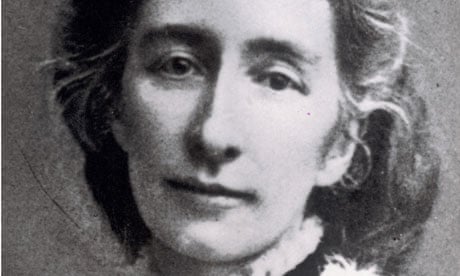C is for Cosima Wagner; AKA Francesca Gaetana Cosima Liszt, illegitimate daughter of Franz Liszt; AKA Cosima von Bülow, wife of the conductor Hans von Bülow, who proved remarkably understanding when Cosima fell in love with the sexually rampant Wagner in 1863.
Cosima was tall, aloof, beak-nosed, antisemitic and altogether a bit weird. According to Wagner expert Barry Millington, she believed women could only fulfill themselves through suffering, and was determined to sacrifice herself on the altar of Wagner's genius. She abandoned poor old Hans, with whom she had had two daughters; then, in an echo of her own chaotic upbringing, bore Wagner three illegitimate children (Isolde, Eva and Siegfried – each named after a Wagnerian character); only marrying him once Von Bülow had consented to a divorce in 1870, and thereafter put up with her new husband's philandering. That same year she was the recipient on her birthday – which she celebrated on Christmas Day – of the so-called Siegfried Idyll; inspired Parsifal (which Nietzsche hated, arguing that the Francophone Cosima has corrupted Wagner's German-ness); and played a key role in the mid-1870s in getting the Bayreuth festival off the ground and making a success of it after a financially disappointing first season.
Reading on mobile? Watch here
Cosima was 24 years younger than Wagner, and outlived him by almost half a century, dying at the age of 92 in 1930. She devoted her life after Wagner's death in 1883 to keeping the Wagnerian flame alive, honing the festival at Bayreuth into a celebration of the 10 works that became canonical – the four operas that make up the Ring Cycle, plus Tristan und Isolde, Tannhäuser, Lohengrin, the Flying Dutchman, Meistersinger and Parsifal.
She was fanatical about following the Master's stage directions – Bernard Shaw, a keen Wagnerian, derided her as the "chief remembrancer" – and was equally pathological in her antisemitism, laying down a template that would discredit Bayreuth for decades. Cosima has had her fans over the years – they have emphasised her wide artistic interests and argued that Wagner's wayward genius relied on her sound business sense – but the writer Philip Hensher is not one of them. "Wagner was a genius, but also a fairly appalling human being," he wrote in 2010. "Cosima was just an appalling human being."

Comments (…)
Sign in or create your Guardian account to join the discussion